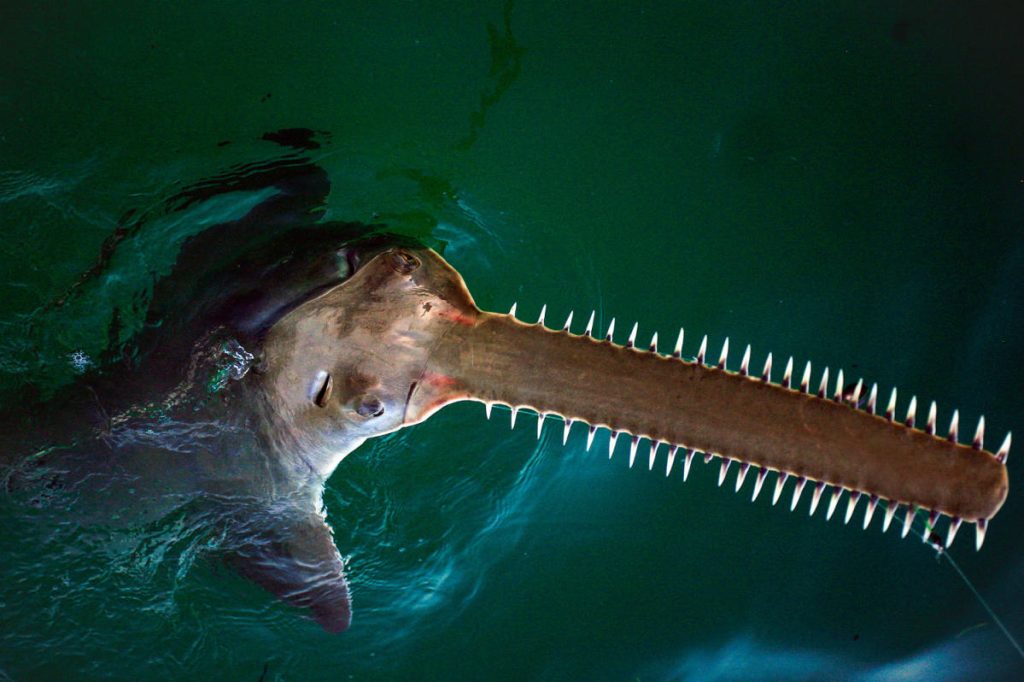A mysterious illness affecting fish in the Florida Keys has caused them to spin in circles, leading to a desperate search for the cause in order to save an endangered species. The behavior was first noticed by fishermen in October and has since spread to various species, including the critically endangered smalltooth sawfish. At least 47 sawfish have died as a result of this mysterious ailment, which has prompted an emergency response to rescue affected fish and find a solution to the problem.
Research has identified a potential suspect in the form of toxins from algae that has colonized the seafloor. This hypothesis is based on the discovery of a cocktail of natural toxins in seawater and the tissues of some affected fish. The toxins are believed to be coming from benthic algae, although researchers have not been able to confirm the exact cause of the algae proliferation. Other experts remain skeptical and believe that more investigation is necessary before a conclusion can be reached.
The situation in the Florida Keys is dire, with economic implications that extend beyond the marine life in question. The local economy relies heavily on tourism, and the presence of spinning fish in the water without a clear explanation is not a good look for the region. Scientists are under immense pressure to deliver answers, as the potential impact on the fishing industry and tourism could be significant. The Keys have already faced various ecological challenges, including hurricanes and coral die-offs, making this latest issue even more pressing.
Efforts are being made to save the distressed sawfish, with scientists working to help the affected animals recover. In early April, a male sawfish was rescued and taken to a quarantine facility for treatment. Despite initial signs of improvement, the animal’s health declined rapidly, leading to euthanasia. Researchers are still awaiting the results of the necropsy to determine the exact cause of death and further investigate the potential role of algae toxins in this crisis.
While the situation is concerning, there are reasons for hope as well. Other important species in the area seem to be largely unaffected by the mysterious illness, offering some relief to scientists and conservationists. Additionally, Florida lawmakers have allocated funds for fish research in the Keys, which could accelerate the search for answers and solutions to the problem. The collaborative efforts of various scientific institutions and organizations are expected to yield valuable insights into the cause of the fish behavior and potential mitigation strategies moving forward.
Overall, the race to save the endangered fish species in the Florida Keys continues, with scientists working tirelessly to uncover the root cause of the mysterious ailment. The discovery of toxins from algae as a potential suspect is a significant development, although more research is needed to confirm this hypothesis. The economic and environmental consequences of this crisis are substantial, making it imperative for scientists to find answers and implement solutions to protect the marine life and preserve the delicate ecosystem of the Florida Keys.


